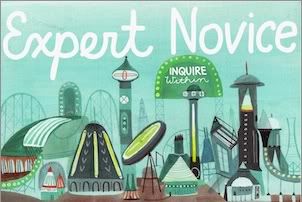Today was going to be the day I learned All of Economics. I have a midterm coming up, you see, and so learning a few economic principles—namely, all of them—seemed like a pretty important use of my time. Sensible, right?
Except, instead of learning All of Economics, I learned Some.
And then spent a really, really long time updating my Google Reader feeds.
The tradeoff was, perhaps, questionable. But now I have a beautiful slate of feeds that reflect my actual priorities. So valuable! The best part about my new system is that I'll be able to digest not only my regular reads, like BoingBoing and Lifehacker, but also the things I forget to read because they don't shove new posts into my face every 5 minutes—the New York Times Magazine, for instance. (Which publishes a measly once per week—i.e., decades in the life of an information addict.)
I won't lie. I'm pretty happy about my newly-functional Google Reader. However, in the spirit of atoning for my economic neglect, I offer you a fascinating article on the economics of RSS feeds. My two pursuits of the day—combined! Real Ultimate Power!
Anyway, in this article Felix Salmon compellingly argues that full-text feeds are the best economic choice for big publications. This may seem counter-intuitive—feeds usually lack the ads and page-view monetization that websites depend upon. Nevertheless, Salmon contends that the types of people using RSS are exactly the types of people you want reading everything you've got. Journalists, bloggers, business leaders and academics are more likely to want their vast streams of incoming information aggregated and stripped of extraneous content, but they're also the most likely to point back to the original article. They're the connectors. They blog, link, e-mail to friends, and cite. They're some of the most valuable readers a publication can have. So why, Salmon asks, do some publications (like the New York Times, unfortunately), insist on truncating their RSS content, making it more difficult for these ultra-readers to do what they do best?
Why, indeed. Some people. They just don't understand economics.
Sunday, November 25, 2007
Subscribe to:
Post Comments (Atom)



2 comments:
Are you a big Google Reader fan?
I'm tempted to try to convert you to the wonders of NetNewsWire + NewsGator Online (synced, of course).
But I've never given Google Reader a try, so I'll pass on the evangelizing.
Thanks for the shout. FWIW, I'm with Daniel on this one: the utility of using an RSS reader is vastly improved by using a standalone application rather than something web-based.
Post a Comment